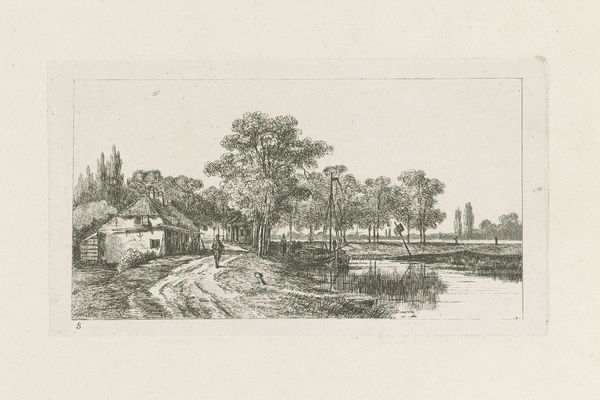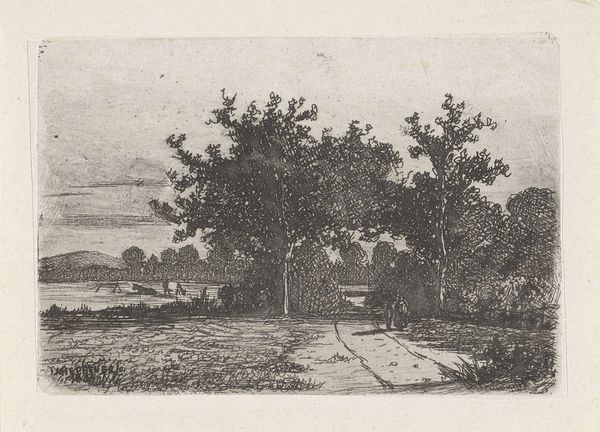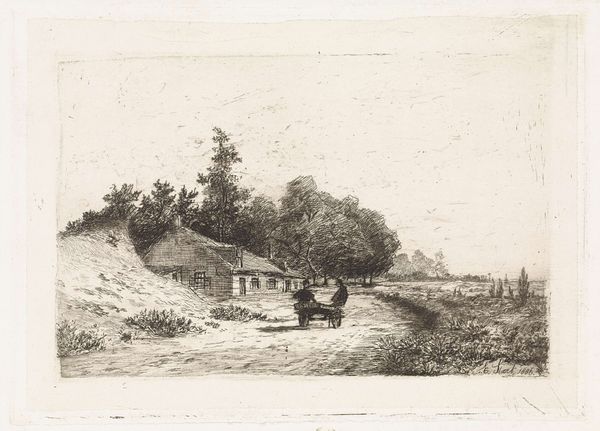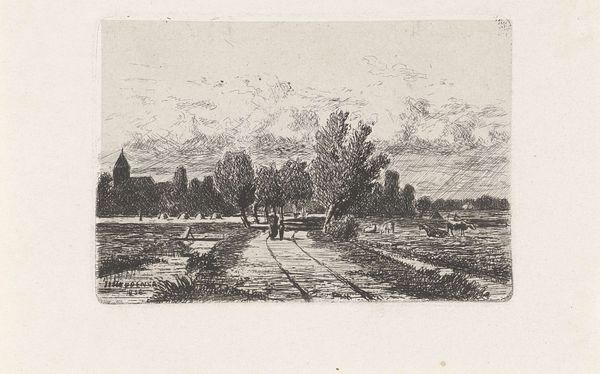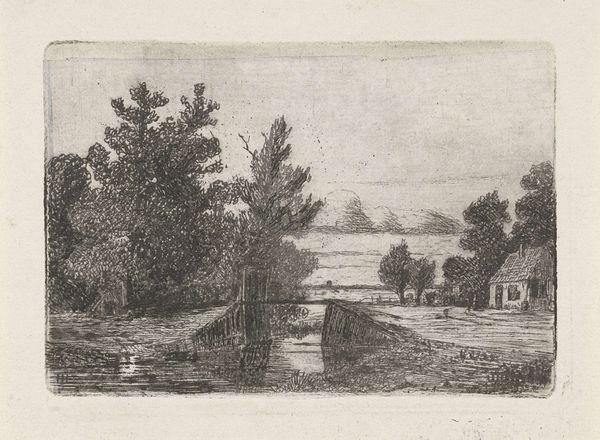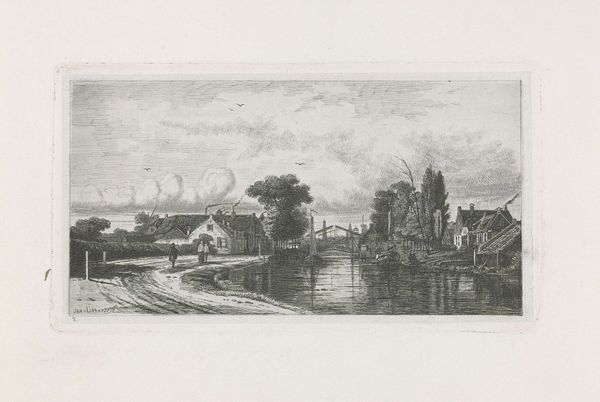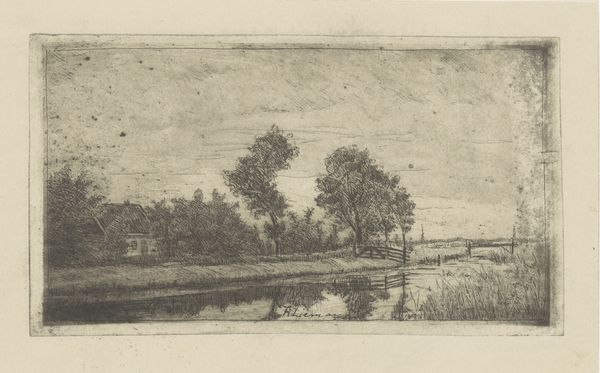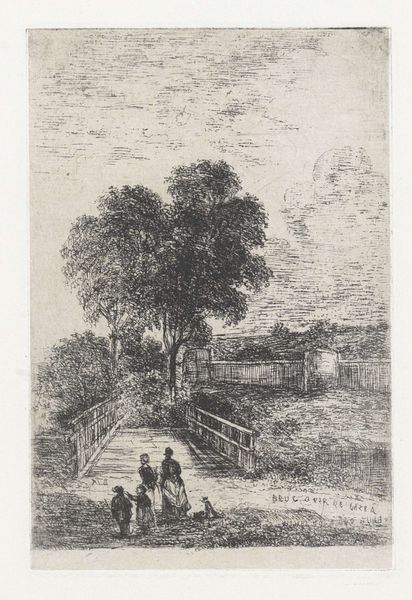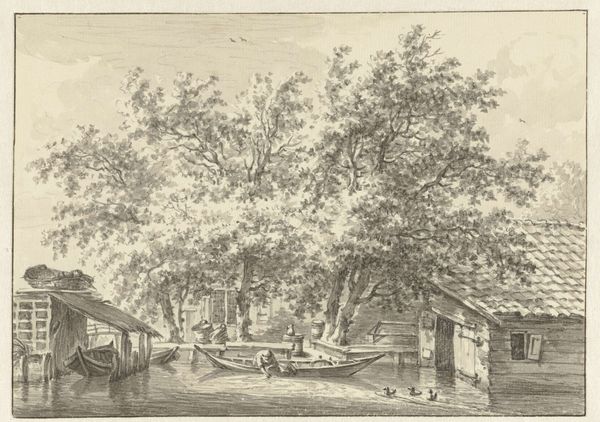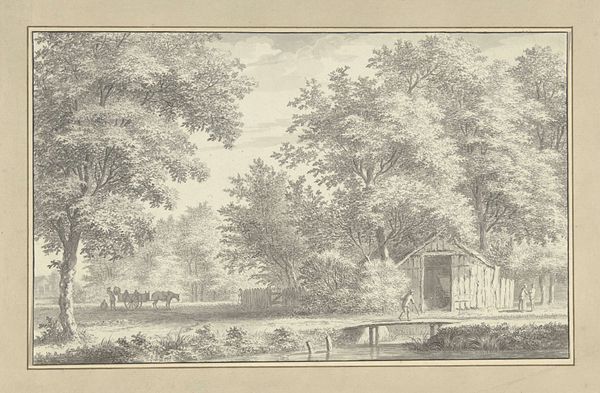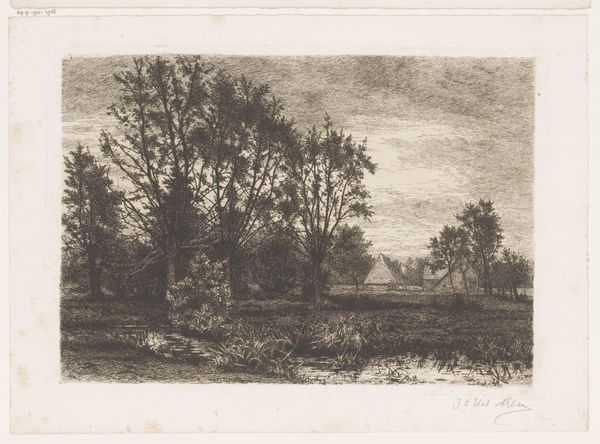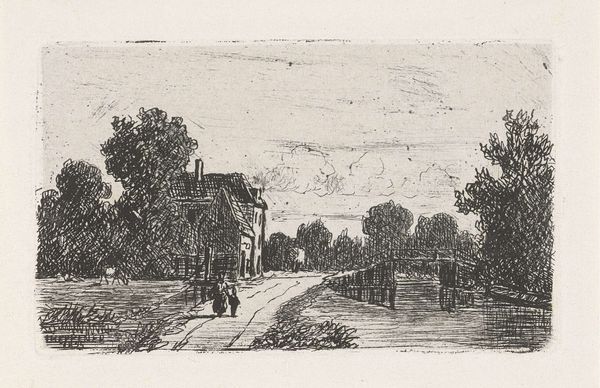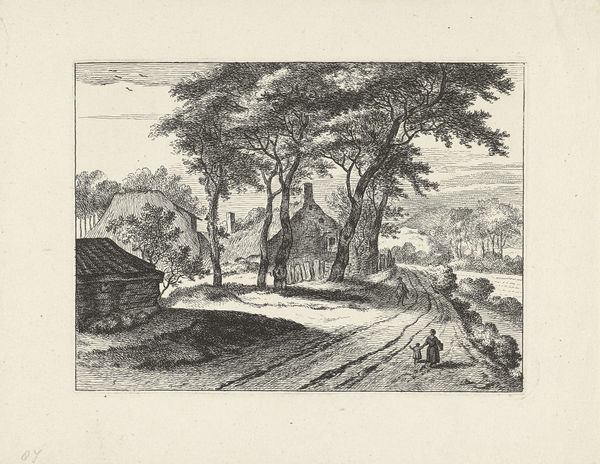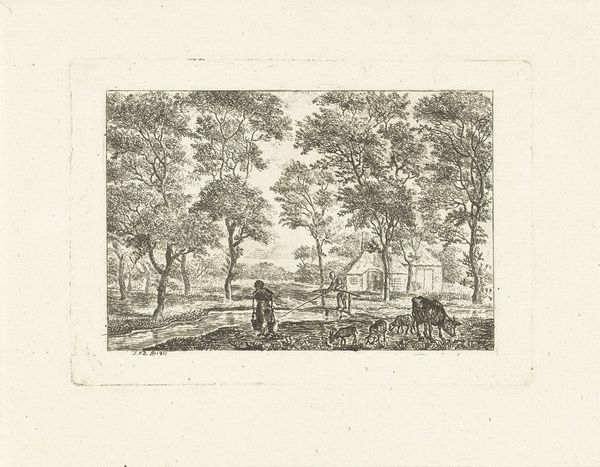
drawing, etching
#
drawing
#
etching
#
landscape
#
genre-painting
#
realism
Dimensions: height 109 mm, width 196 mm
Copyright: Rijks Museum: Open Domain
Jan van Lokhorst created this landscape scene using etching, a printmaking technique that democratized image production. The process involves coating a metal plate with a waxy, acid-resistant material, then drawing through it with a sharp needle to expose the metal. The plate is then immersed in acid, which bites into the exposed lines, creating grooves. The plate is then inked, and wiped clean, leaving ink only in the etched grooves. Finally, the plate is pressed onto paper, transferring the image. This technique allowed for multiple identical images to be produced, expanding access to art beyond unique paintings or sculptures, contributing to the burgeoning visual culture. The fine lines and subtle gradations of tone achieved through etching give this scene its atmospheric quality. Understanding the material process helps us appreciate how printmaking served as a crucial tool in disseminating images, and reshaping visual culture in the 19th century. It challenges our traditional notions about artistic value.
Comments
No comments
Be the first to comment and join the conversation on the ultimate creative platform.
